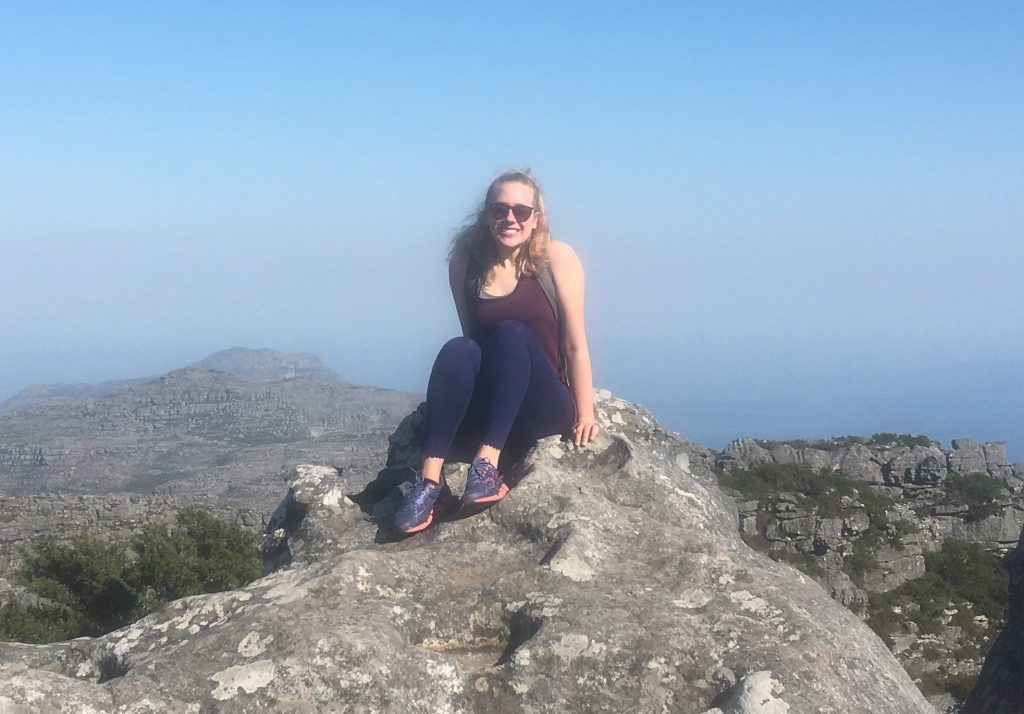Alumna Abby Yates says South Africa continues to resonate in her life back home
December 7th, 2018 | Alumni, SIT Study Abroad
Abby Yates, a senior from the University of Minnesota, shares her thoughts about the SIT summer internship program South Africa: Social Justice and Activism and its lasting effect.

It’s been over a month since I touched down back in the U.S., and I’ve reflected on my experience in Cape Town more than I expected. Family, friends, professors, and acquaintances all asking “how was your trip?” has been overwhelming and difficult – I can’t even articulate into thought how I “liked” my time abroad, let alone explain to someone else the dynamic experience I had over those seven weeks.
I will say, however, that I have noticed how much I can relate my time in Cape Town to my life back home. For example, I’m in a geography class that focuses on citizens, cities, and communities, and my professor invited us to attend a “community indicator” conference at the University of Minnesota. The keynote speaker, Dr. Chris Brenner, spoke about how community indicators and data can be misleading in an age of “alternative fact.” He brought up Cape Town as an example of a city whose community indicators imply that the city is diversified and progressive because of the number of people who work in the city who are non-white, and how that may be misleading. He explained that the city center and businesses in particular are heterogenous, when in reality the city runs on a system of migratory labor. I sat listening when he explained the misconceptions about Cape Town, and thanks to my time there, I felt like I knew what he was about to say regarding the pervasive results of apartheid.
It seems as though Cape Town is following me in the most amazing and thought-provoking ways.
I also had the privilege of hearing and seeing Angela Davis speak at the University. She discussed power, privilege, and abolition of institutions that systematically oppress, such as the police, capitalism, and marriage. I was struck by her passion and eloquence, and I got a bit emotional when she answered a question from the audience about how educators can teach students about history and social justice. She encouraged those interested in teaching to ask themselves how they (we) can develop a way of being in a world and educating students where we encourage students to ask questions about things that we may take for granted.
I feel as though I learned how to do just that in Cape Town. She also spoke about transformative justice, and brought up Amy Biehl* and the work that Amy’s family did with their daughter’s killers. It was so powerful and I felt so grateful to listen to one of the most impactful activists in American history talk about justice and be able to connect that back to my experience going to Amy’s memorial in Gugulethu. It seems as though Cape Town is following me in the most amazing and thought-provoking ways.
*Note: Amy Biehl was an American Fulbright scholar killed in 1993 in South Africa amid racial violence.
